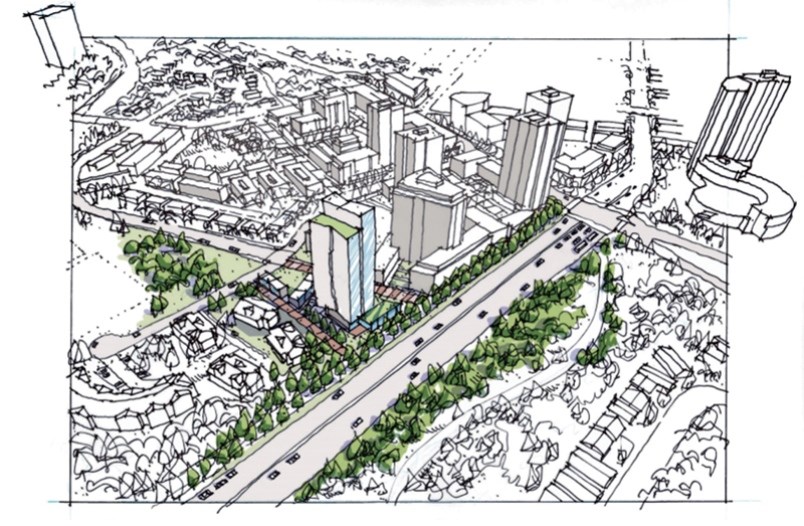After more than two years of contemplation and consultation, the District of West Vancouver is ready to put pen to paper on its new official community plan.
Under provincial law, every municipality must have an updated plan that lays out its broad policy positions, potential development and land use changes but West Vancouver’s hasn’t had an update in 14 years.
Council voted unanimously Monday night to assemble roughly 3,000 pieces of input gathered through a series of stakeholder meetings, surveys, youth brainstorms, online outreach, and “pop-up” planning events at public facilities in 2017, and start shaping them into a plan.
In broad strokes, the people who have participated so far are supportive, staff noted, with 72 per cent of those who responded to a survey advising council to proceed. Another 20 per cent said council should proceed but with conditions. Only eight per cent advised halting the OCP process.
But the nascent plan lacks the specific changes for neighbourhoods that are typically top of mind for residents. General themes to be included in a draft OCP are more “gentle” infill housing in existing neighbourhoods, creating more density in existing town centres as well as creating a new neighbourhood on the slopes of Hollyburn Mountain called Cypress Village. Specific area plans for Horseshoe Bay, Ambleside, Marine Drive and the Taylor Way corridor will be grafted into the plan after individual processes.
The plan also speaks to addressing housing affordability, encouraging cycling, transit and walking, promoting tourism and commerce, environmental protection, supporting demographic diversity and embracing the arts.
District staff will spend the next six weeks preparing a draft OCP for review by council and the community, with a goal of having the plan passed by council in June.
Most members of the public who came out to speak to council on Monday night had one message: Get on with it.
“There is a palpable sense of urgency within the business community to complete our OCP, which is paramount to addressing the transportation, affordable housing and employment needs for our businesses right now. We do not have time to wait to make the necessary changes that our business community needs,” said Mark Senner, president of the West Vancouver Chamber of Commerce.
Others, however, warned that council’s timeline for getting the OCP approved won’t leave enough time for substantive changes or even wholesale rewrites of the plan if the public doesn’t like what they see in the draft.
“This isn’t just overly ambitious, I think it’s not possible. At least not with the necessary rigour that this process deserves,” council watcher Melinda Slater said. “The public hasn’t had anything specific to respond to yet. So far, we’ve only seen policy statements and directions that are so broad and motherhood in nature, they are impossible to disagree with and I think that this has given staff a false sense of community support.”
Some members of council shared that concern, including Couns. Peter Lambur and Christine Cassidy but most were eager to use the new OCP as a tool to temper the housing unaffordability crisis.
“If more time is needed, then more time is needed. There’s no question. I do want to acknowledge though that I am hearing out of the community that we’ve been working on this for two and a half years and we want to get on with it,” said Coun. Mary-Ann Booth. “The reason we want to get on with this isn’t just because this is an administrative exercise. The reason they want to get on with it is people are in ... crisis. They’re worried.”
Mayor Michael Smith also said it was time West Vancouver’s neighbourhoods saw some ingenuity and change.
“I get stopped everywhere – the seawalk, the seniors’ centre, seniors lunches – people are mad, wondering why council is doing nothing. They are ready to get the tar and feathers out. I mean that sincerely,” he said, noting that unless you’re in the market for a 50-year-old condo or a single-family home, West Van has “nothing for you.”
“Ingenuity is a good thing. It’s what built our country and it’s what can help us create a community that works for all of us. Not just the people who moved here 40 or 50 years ago and don’t want the community to change at all. We have to move on. This nonsense has got to stop.”



